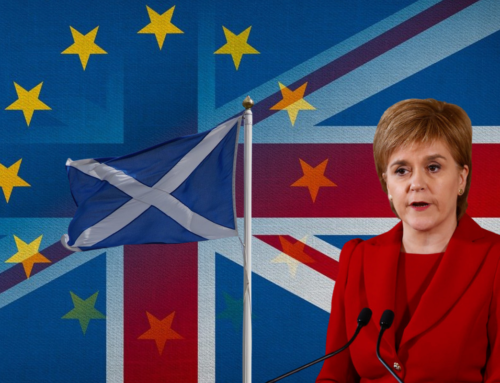by Brendan Donnelly
First published on the European Movement Blog
In public commentaries on Britain’s position in the European Union, reference is often made to the possibility of a European referendum for the UK in 2017. But it is worth stressing that a European referendum for this country in 2017 is only one of a range of possibilities, including earlier or later dates for this referendum, or even its not being held at all.
When the date of 2017 is mentioned for a possible European referendum in the United Kingdom, it is usually based upon Mr. Cameron’s proposal that a Conservative government elected in 2015 would as one of its first tasks restructure or “renegotiate” the terms of British membership of the European Union. These new terms of membership of the European Union would then be put to a referendum in or before 2017, a referendum in which presumably Mr. Cameron would urge a “yes” vote. This proposal has attracted a wide but not universal measure of support within the Conservative Party. A number of question marks nevertheless hang over its implementation.
It is by no means clear that the Conservative Party will win the next General Election or that if elected it would be allowed by the other members of the Union to renegotiate the terms of British membership. Nor is it clear that such renegotiated terms could ever be acceptable to Mr. Cameron’s Conservative Party, many members of which either seek simply to leave the European Union or so to attenuate the terms of British membership that Britain’s situation in the Union would be little different from explicit withdrawal. In such circumstances, it could only be a matter of speculation whether Mr. Cameron could anyway win in 2017 the referendum he would have provoked.
Subject to the above qualifications, the current Conservative approach to European referendum is at least superficially a clearcut one. That of the Labour Party on the other hand is still a matter of internal political debate. There is a current of opinion within the Labour Party which holds that the Party should not promise any referendum beyond any plebiscite triggered in future by the European Union Act, which prescribes a referendum for major treaty changes involving greater pooling of sovereignty within the Union. Others argue that the Labour Party needs anyway to match in some form the undertaking of the Conservative Party to hold a referendum in the next Parliament. This would repeat the policy of Mr. Blair in 1997, whereby New Labour was anxious to avoid being “out-flanked” on European issues by the Conservative government of the day. Some commentators had expected that Mr. Miliband would use his recent conference speech to refine his Party’s position on this matter. No such refinement was however forthcoming. The Labour Party’s manifesto for the next General Election may contain no commitment to a referendum in the next Parliament or one formulated in terms that cannot now be precisely predicted. Even if the decision is taken to make a commitment to a referendum between 2015 and 2020, there are widely differing views within the Labour Party as to when might be the best time and circumstances for it to be held.
The Liberal Democrats, for their part, have until now argued that any referendum held under the provisions of the European Union Act should be regarded as a referendum on the whole question of British membership of the European Union. If, as is possible, the Liberal Democrats move nearer over the coming months to the Conservative commitment to a European referendum in the next Parliament, then that will certainly increase the pressure on the Labour Party to do likewise.
It will be obvious from the above that the political background against which decisions about a European referendum will be taken is confused and fluctuating. Even yesterday, the Mail on Sunday contained an article by Adam Afriyie MP, calling for a European referendum before the next General Election. He claims to have wide support for this proposal on the Conservative backbenches at Westminster.
The European Movement believes that the UK’s membership of the EU is a vital issue for our country’s future that should be constantly debated at local, national and European elections. We doubt the arguments and good faith of many eurosceptics who call for a referendum, claiming a concern for democracy but in reality simply seeking a way of getting Britain out of the European Union. We do not however fear a referendum, we are ready to contest it vigorously if it comes and are confident of an outcome that will ensure Britain’s continuing membership in the Union. I am personally happy publicly to advocate this position of the Movement, which I think is a wise one.
I would just add one caveat. A referendum on Britain’s position within the European Union will be at best a temporary mitigation of Britain’s problematic relationship with the rest of the European Union. A long-term resolution of this problem will require political leadership of a content and quality that we have only rarely seen on the European issue in this country. Within the present party structure of the United Kingdom, no such leadership is obviously in prospect.






